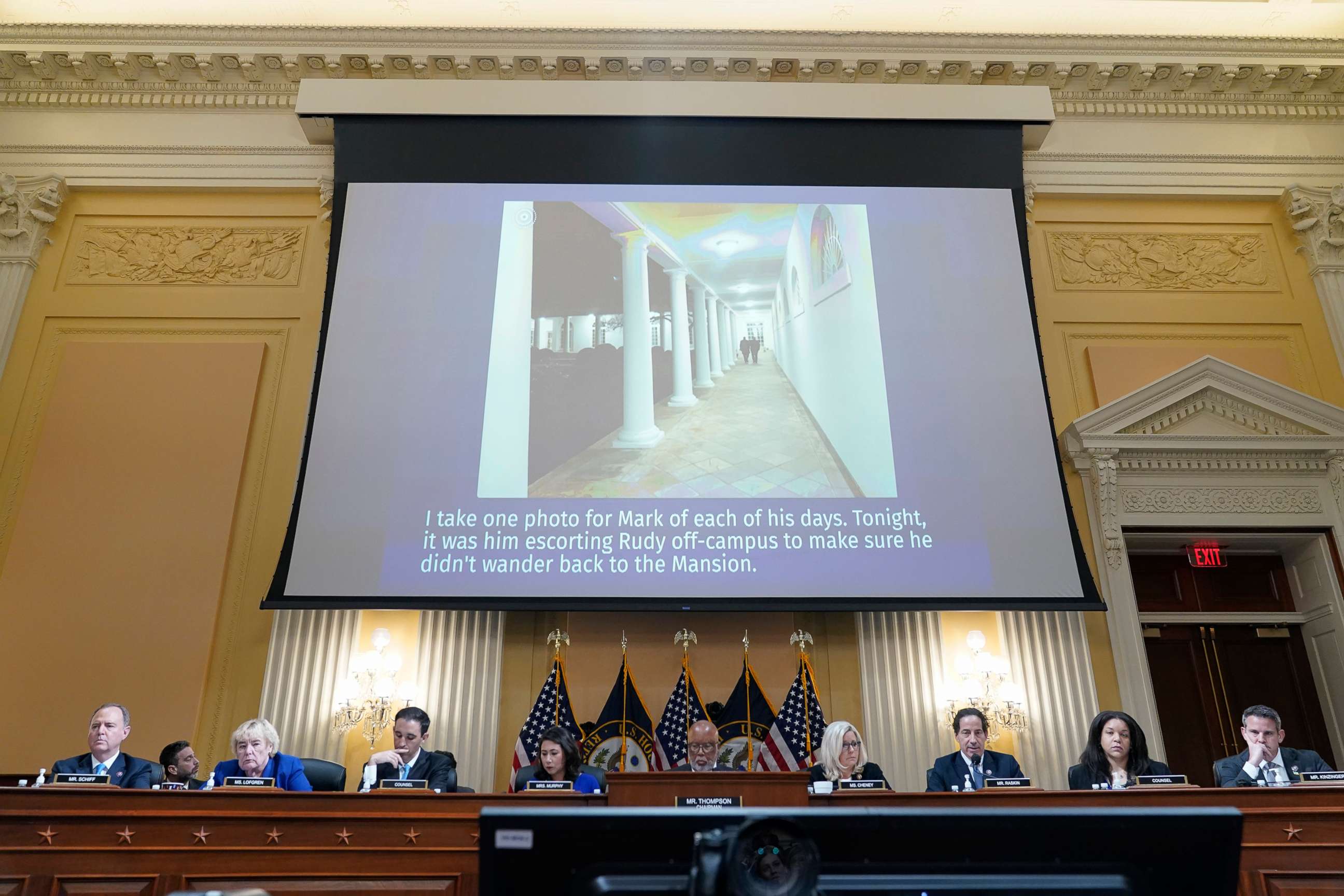Cipollone claims privilege when asked why he wasn't in Trump, Pence, Eastman meeting
Trump White House counsel Pat Cipollone claimed privilege not to answer when asked by committee investigators in taped testimony why he wasn't allowed in an Oval Office meeting with Trump, Vice President Mike Pence and attorney John Eastman on Jan. 4, 2021.
"I did walk to that meeting, and I ultimately did not attend," Cipollone said. "The reasons for that are privileged."

Cipollone said that he and Pence both believed Eastman's theory for overturning the election was "nutty" and recalled that he told someone in Pence's office that the vice president could "just blame me" for refusing to go along with Eastman's plan.
"I think the vice president did the right thing. I think he did the courageous thing," Cipollone said, adding that he suggested Pence should be awarded the Presidential Medal of Freedom for carrying out his oath of office, under immense pressure from Trump.




